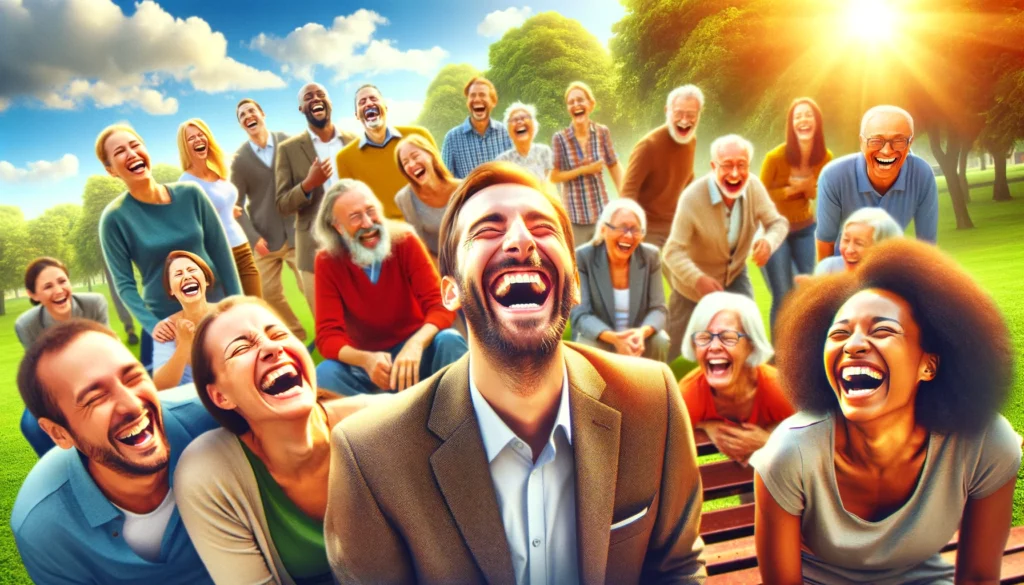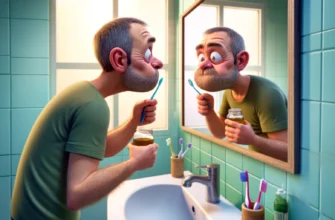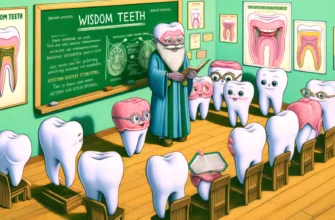Imagine this: you’re at a solemn gathering where the tension is thicker than the plot of a Christopher Nolan movie. Suddenly, your phone blares a video of a cat dramatically misjudging a jump. You try to stifle your laughter, but it bursts forth like soda from a shaken can. Everyone stares, but soon, they’re chuckling too. Philosophically speaking, laughter is a universal solvent – it dissolves awkwardness and distress faster than acetone on a styrofoam cup. It’s an instant vacation for the mind, where every chuckle shuffles the dreary deck of daily life. So, why is laughter the secret seasoning that makes life’s hefty meal a bit more digestible? Let’s find out.

- 10 Benefits of Laughter:
- Reduces Stress
- Boosts Immunity
- Improves Heart Health
- Burns Calories
- Strengthens Relationships
- Enhances Resilience
- Relieves Pain
- Improves Mental Health
- Attracts Others to Us
- Helps You Live Longer
- 10 Facts About Laughter
- Summary
- FAQ (Frequently Asked Questions About Laughter)
- Why is it good to have laughter?
- Is laughter good for the brain?
- What is the value of laughter?
- Is it better to smile or laugh?
- Is it attractive to not smile?
10 Benefits of Laughter:
Reduces Stress
Next time your stress levels are scaling the charts, consider laughter your personal stress-buster DJ, spinning tracks that calm the nerves and soothe the soul. It’s like a psychological pause button, reminding your body that life isn’t all deadlines and doom.
Boosts Immunity
Turns out, laughter might be the unsung hero in your immune system’s saga. By lowering stress hormones and cranking up the production of protective cells, a good giggle primes your body to fend off invaders like a knight in shining armor – only much less clunky.
Improves Heart Health
Laughing is like giving your heart a gentle workout. It gets the blood flowing and the arteries pumping, helping to guard against heart diseases – a much jollier alternative to jogging, with fewer chances of tripping over!
Burns Calories
Who knew sitting on the couch watching sitcoms could be a workout? Laughter can torch calories by revving up your heart rate. So yes, you can laugh your way to a lighter you, one chuckle at a time.
Strengthens Relationships
Laughter is the glue in friendships and the spark in love affairs. It’s a social magnet that draws people together and keeps them there, stuck in the gooey goodness of mutual mirth.
Enhances Resilience
Think of laughter as your emotional shield; it fortifies your spirit against the slings and arrows of outrageous fortune. Whether it’s bad news or bad traffic, a laugh a day keeps the doldrums away.
Relieves Pain
Laughter might just be the most enjoyable painkiller in your medicine cabinet. It releases endorphins – those feel-good chemicals that buzz through your body and bump your pain threshold up a notch or two.
Improves Mental Health
Laughter is a breeze that blows away the smog of the mind. It lightens the load of anxiety and depression, clears the skies for a sunnier mood, and throws a lifeline to those treading water in dark thoughts.
Attracts Others to Us
A good sense of humor doesn’t just enhance your Tinder profile; it makes you a beacon of light in any social setting. Laughter is the universal signal of openness, a warm invitation to a friendlier, less guarded interaction.
Helps You Live Longer
A long life may well be your reward for taking things less seriously. Studies suggest that those who laugh often might just outlive those who prefer to frown. Perhaps laughter really is the best elixir for longevity.
10 Facts About Laughter
- Laughter is a universal language – even apes chuckle when tickled!
- Laughter is infectious; hearing laughter activates the area of the brain involved in joining in.
- Babies can laugh before they can speak, suggesting the importance of laughter in human development.
- Gelotology is the study of laughter and its effects on the body.
- Laughter can be both a voluntary and involuntary response.
- It predominantly occurs during pauses at the end of phrases during social interactions.
- The average adult laughs approximately 17 times a day.
- Laughter can also be a social tool or a mask for discomfort.
- People are more likely to laugh in groups than when alone.
- The longest recorded laughter episode lasted about an hour and a half after a joke.
Summary
In conclusion, laughter isn’t just a mere reaction to humor; it’s a mighty force in its own right, capable of mending hearts, bridging gaps, and even extending our life span. It’s no wonder that comedians seem to have understood something profound about life: it’s a lot less daunting when you can laugh at it. So next time life throws a curveball, remember that laughter isn’t just the best medicine – it’s the spice of life, too.
FAQ (Frequently Asked Questions About Laughter)
Why is it good to have laughter?
Laughter is beneficial because it can act as a stress reliever, releasing endorphins, the body’s natural feel-good chemicals. It enhances your intake of oxygen-rich air, stimulates your heart, lungs, and muscles, and increases the endorphins that are released by your brain.
Is laughter good for the brain?
Yes, laughter is good for the brain. It enhances brain functioning by improving alertness, creativity, and memory. The release of endorphins caused by laughter can also help improve mood and decrease feelings of depression and anxiety. Engaging in joyful activities that cause laughter can create neural pathways that help improve one’s mental health over time.
What is the value of laughter?
Beyond the physical and mental health benefits, laughter can strengthen relationships, enhance teamwork, help defuse conflict, and promote group bonding. It can serve as a powerful antidote to stress, pain, and conflict, making it a simple yet effective way to feel happier and more connected.
Is it better to smile or laugh?
Both smiling and laughing have their benefits. Smiling can be a subtle, yet powerful, way to create a good impression, and it often plays a role in social interactions by signaling cooperation and amiability. Laughing, which is usually a more expressive and intense demonstration of emotion, can have all the benefits of smiling but with the added advantages of a physical release. Both are beneficial, but laughter generally involves a more significant physiological impact
Is it attractive to not smile?
Attractiveness can be subjective and culturally influenced. Typically, smiling is perceived as more attractive because it signals friendliness, warmth, and openness, which are universally appealing traits. However, in some cultural or personal contexts, a more reserved expression might be valued or considered intriguing. Overall, whether or not smiling is seen as attractive can depend on specific social or cultural expectations and individual preferences







